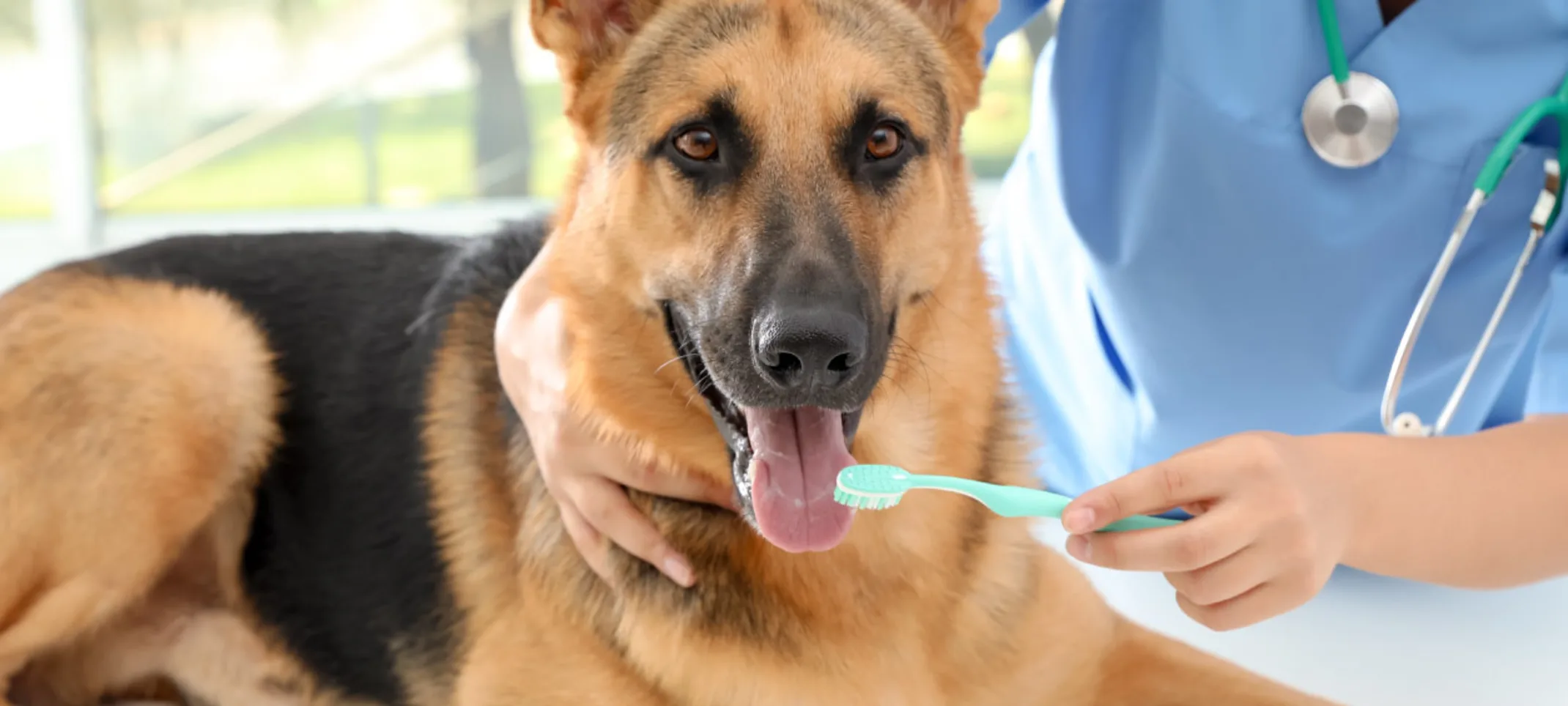Valley Veterinary Hospital
Dentistry
Annual dental exams and cleanings are recommended to protect your pet from potential health problems and to help them maintain a healthy and clean mouth.

Overview
Studies show that 50% of all dogs and cats have some form of periodontal disease. That number jumps to 80% in pets that are 3 years of age or older. When left untreated, periodontal disease can cause infection, pain, and tooth loss over time. It can also lead to serious health problems like changes in the heart, liver, and kidneys. Because of this, we recommend an annual veterinary dental healthcare examination for all pets.
Why do pets need dental care?
Many health problems start in the mouth. Plaque, tartar, periodontal disease, and infected teeth serve as a source of inflammation and infection for the rest of the body.
Dental disease is one of the most common problems we see in pets. It can cause drooling, reluctance to eat, swelling, bad breath, redness of the gums, loose teeth, and tooth discoloration. Dental disease if left untreated can have a detrimental effect on the whole body.
Prevention is key!
We highly recommend preventive care to circumvent the need for treatment. There are various ways to prevent dental problems in your pets.
Tooth brushing
Veterinary-recommended dental diets. Chat with us at your next visit!
Water additives to reduce plaque, and more
When should I seek dental care for my pet?
Dental issues and dental-related diseases can easily be prevented by visiting us regularly for dental examinations and cleanings. We take a comprehensive approach to dental care including dental health assessment, treatment, prevention and treatment. Talk to us about dental care at your visit.
How does it work?
Teeth Exams, Cleaning and Polishing
Dog and cat dental cleanings are very similar to human dental cleanings. We are required to use anesthesia to examine and clean the teeth properly and safely. After the cleaning, our veterinarians perform a thorough oral exam and check for signs of disease like gum loss, root exposure, or pockets around the root.
Also, like human dentistry, we recommend doing full mouth radiographs (x-rays) of your pet. This allows our veterinarians to be able to evaluate the roots of your pet's teeth as well as any disease or abnormalities that are located below the gum line and not visible on examination alone.
Tooth Extractions
We make every effort to save teeth that we feel have a chance to be successfully treated. In many circumstances, however, periodontal disease is so advanced that treatment without extraction is unsuccessful. We only extract teeth that in the doctor's opinion are beyond saving.
Minor Oral Surgery
Many teeth require oral surgery to safely remove each root. We have extensive training and experience to perform these procedures properly. Pain medications are administered in the clinic and provided for in-home aftercare.
Anesthesia-Free Cleaning
While the idea of anesthesia-free cleaning may sound appealing, this procedure does not address the real issues below the gum line. This process only removes the surface material on the crown and may be painful for your pet. We recommend a complete dental cleaning in a controlled safe environment where any discomfort and stress can be addressed.
